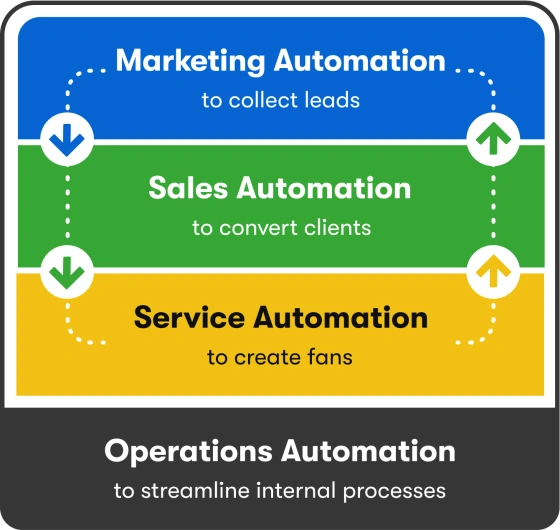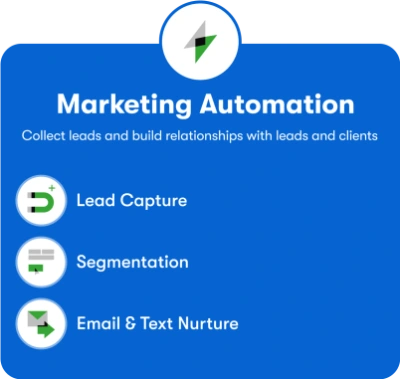Marketing Automation is the automation of repetitive tasks involved in targeting and attracting new leads, capturing their information in your small business CRM, and automatically following up so they move forward in your sales process.
It primarily involves setting up campaigns that automatically send specific content to leads based on behavior and data, with the goal of increasing conversions.
Marketing Automation falls under the umbrella of Small Business Automation, which is using automation software to eliminate manual, repetitive tasks across your entire business by setting up automated processes that run in the background so you and your team can focus on more important things.
Small Business Automation includes:
- Marketing Automation (you are here!) — Collect leads, follow up automatically, and nurture them until they’re converted to prospects
- Sales Automation — Convert leads by following up regularly, setting up appointments, and making offers and upsells
- Service Automation – Create fans by delivering all you promised and more, asking for reviews and referrals, and following up for repeat sales
- Operations Automation — Streamline internal processes so your team operates more efficiently and your prospects and customers have a better experience

14-day free trial. No credit card required.
